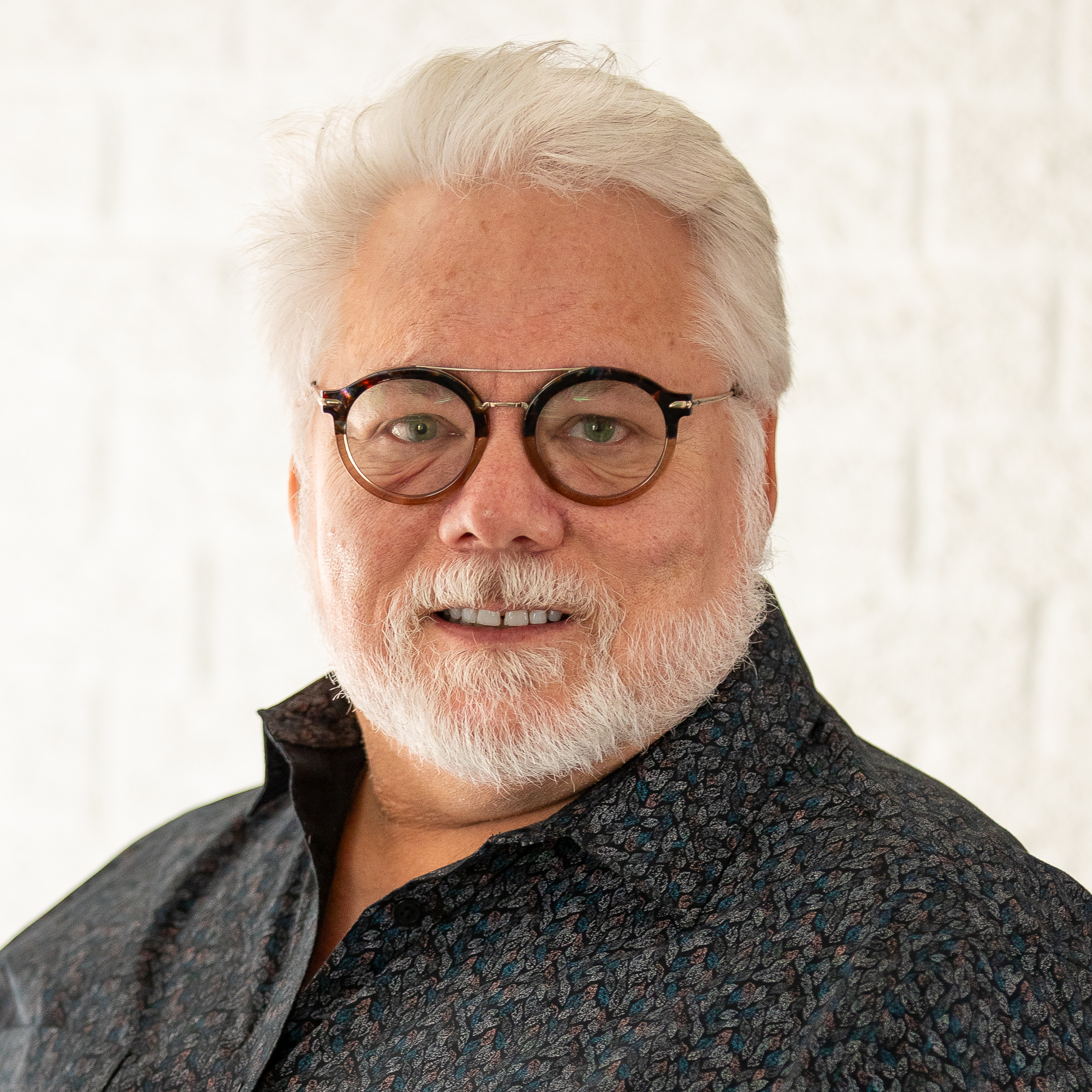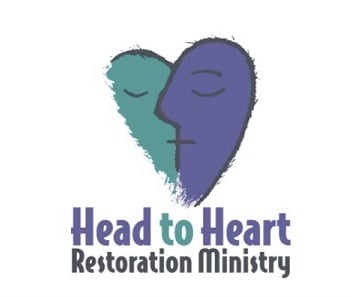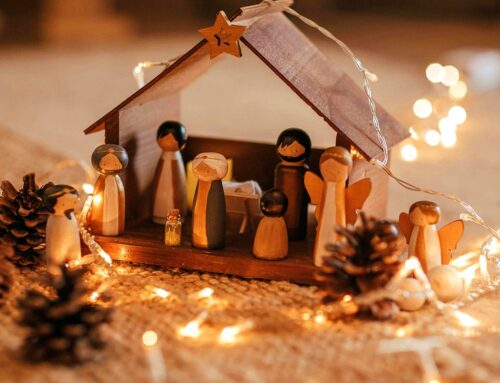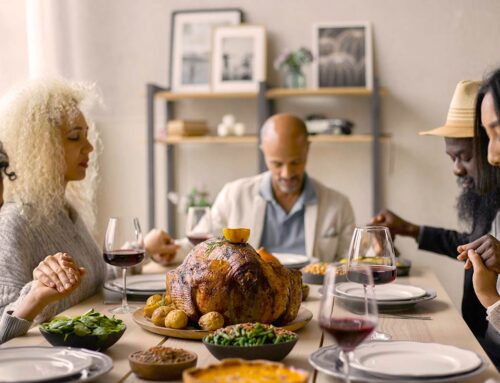We are called to live in deep, meaningful relationship with others.

In the gospels of Matthew, Mark, and Luke, the writers recount the story of two men who brought their paralyzed friend to Jesus for healing. They not only had to carry their friend; they also had to carry him and push through a crowd to get to Jesus. In Mark and Luke’s accounts, the friends even had to cut a hole in the roof of the house where Jesus was speaking to lower their friend down, in order to get him near Jesus. What a great story of life, friendship, and relationship.
We are called to live in deep, meaningful relationship with others. Just as the paralyzed man relied on his relationship with his friends, relationships are key to our healing too—even crucial for our healing. Without the close companionship of his friends, the paralyzed man would have been unable to move through the crowd, get close to Jesus, and be healed.
While we may not experience physical paralysis, many of us suffer from emotional wounds and problems that can paralyze our ability to move toward Jesus for healing. During these times, we need community and relationships to help carry us to Him. Is fear of rejection, self-rejection, or shame from past actions keeping you paralyzed and isolated from relationships?
We are called to live in deep, meaningful relationship with others.

In the gospels of Matthew, Mark, and Luke, the writers recount the story of two men who brought their paralyzed friend to Jesus for healing. They not only had to carry their friend; they also had to carry him and push through a crowd to get to Jesus. In Mark and Luke’s accounts, the friends even had to cut a hole in the roof of the house where Jesus was speaking to lower their friend down, in order to get him near Jesus. What a great story of life, friendship, and relationship.
We are called to live in deep, meaningful relationship with others. Just as the paralyzed man relied on his relationship with his friends, relationships are key to our healing too—even crucial for our healing. Without the close companionship of his friends, the paralyzed man would have been unable to move through the crowd, get close to Jesus, and be healed.
While we may not experience physical paralysis, many of us suffer from emotional wounds and problems that can paralyze our ability to move toward Jesus for healing. During these times, we need community and relationships to help carry us to him. Is fear of rejection, self-rejection, or shame from past actions keeping you paralyzed and isolated from relationships?
We are called to live in deep, meaningful relationship with others.

In the gospels of Matthew, Mark, and Luke, the writers recount the story of two men who brought their paralyzed friend to Jesus for healing. They not only had to carry their friend; they also had to carry him and push through a crowd to get to Jesus. In Mark and Luke’s accounts, the friends even had to cut a hole in the roof of the house where Jesus was speaking to lower their friend down, in order to get him near Jesus. What a great story of life, friendship, and relationship.
We are called to live in deep, meaningful relationship with others. Just as the paralyzed man relied on his relationship with his friends, relationships are key to our healing too—even crucial for our healing. Without the close companionship of his friends, the paralyzed man would have been unable to move through the crowd, get close to Jesus, and be healed.
While we may not experience physical paralysis, many of us suffer from emotional wounds and problems that can paralyze our ability to move toward Jesus for healing. During these times, we need community and relationships to help carry us to him. Is fear of rejection, self-rejection, or shame from past actions keeping you paralyzed and isolated from relationships?



Understanding Rejection
Rejection signifies a lack of love in our lives. When rejection comes in, it always brings two friends: the fear of rejection and self-rejection. These come alongside rejection and reinforce our instinct to isolate from others. At times, the lack of love we experience is real and can be directly connected to specific events; at other times, the rejection is not real and is based on our own perceptions. Unfortunately, the end result is the same: paralysis, isolation, and lack of meaningful relationships.
For instance, a child of divorced parents might believe that somehow the divorce was their fault and that they are not worth being loved. Similarly, a child who experiences the death of a loved one at an early age may feel that they should have been able to stop the death from occurring. In both instances, these children might grow up isolating themselves out of fear that they will experience further rejection or loss.
A child of abuse may believe that they deserve to be mistreated or abused, thinking that if they were only good enough—tried harder, made better grades, or did not forget to do their chores—then they would not be abused. The child may wonder, What is wrong with me? Why can’t I be good like everyone else? They often grow up believing that they do not have worth and value, are defective, and that no one would want to be in relationship with them.
Sometimes the rejection does not come into our lives through the actions of others but by our own mistakes and poor choices. An addiction, substance abuse, or illegal or harmful activities not only leave wounded victims but often victimize ourselves as well. We may receive forgiveness from Jesus and others for our actions, but we must also forgive and release ourselves from our shame in order to embrace deep relationship with others.
The Path to Healing
In order to find freedom from rejection, we must take risks and enter into relationship with others. The love, care and unconditional acceptance of others brings healing and frees us from paralysis and isolation.
We can allow others to carry us to Jesus for healing.
But being carried takes risks. What if you get wounded again? What if they reject you? What if you connect with others and do not get healed?
Unfortunately, we often do get wounded by the people who love and care for us the most. When we are in relationship with others, our expectations and needs will not always be met, but this does not lessen the love and acceptance they do give us. We have to learn to separate the mistakes of others from intentional rejection. If we do experience real or perceived rejection, we must quickly offer and receive forgiveness. Forgiveness breaks the paralysis of hurts and wounds and restores relationships.



When we make mistakes or poor choices, we must acknowledge our actions and be intentional in separating those actions from our identity as individuals. If God can forgive us, then we can surely choose to forgive ourselves too.
When we are in relationship with others, we are often carrying them to Jesus at the same time they are carrying us. Healthy relationships involve a constant giving and receiving from each other. As we carry others, we often shift our mind and feelings off our own paralysis and onto the needs of others. We may find that when we come to Jesus, both parties receive healing.
We need to acknowledge that we are all still works in progress and at different stages of healing. As we build relationships and become more vulnerable and open about our personal fears, feelings, and struggles, the acceptance and encouragement we receive can restore health to our broken lives.
It is time to take the risk of establishing deep, meaningful relationships. Take a step of faith and carry the hurt and wounded to Jesus. Together, we can all be freed from the paralysis that binds us in rejection and isolation.





